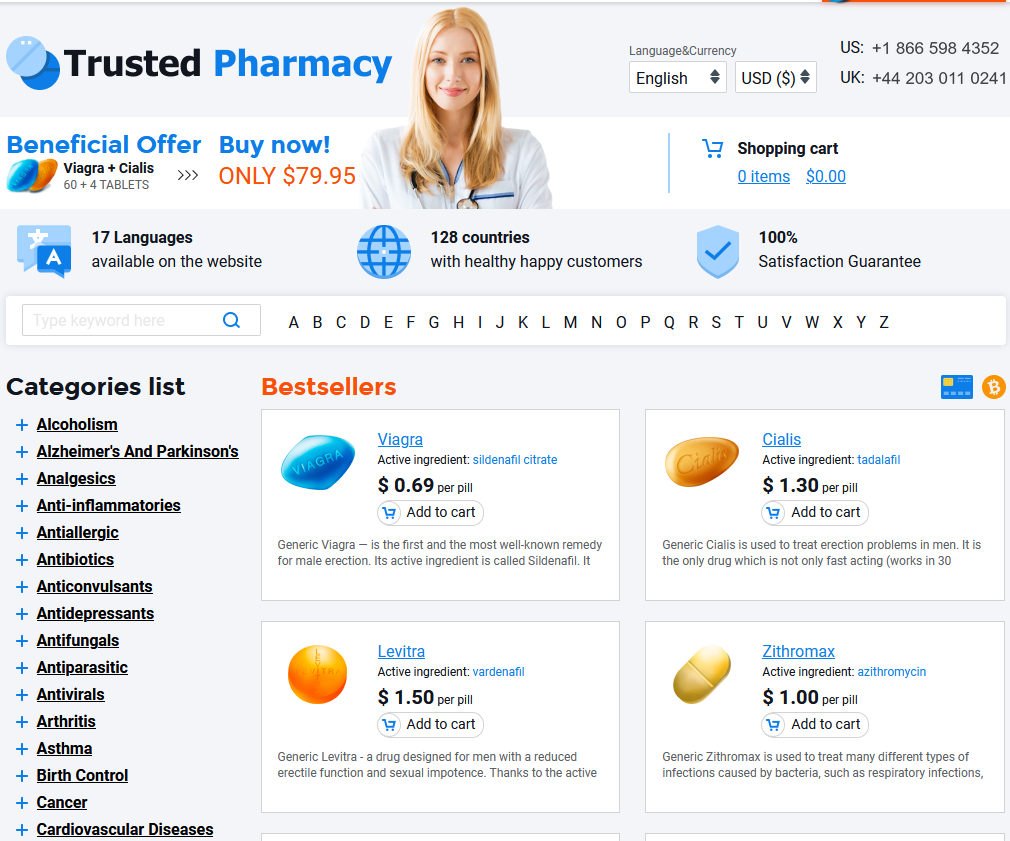To Visit Online Pharmacy Click HERE ↓
Singulair: The Science that Makes It a Game-Changer in Allergy Relief
Singulair is a game-changer in allergy relief, offering something beyond just relief from symptoms. Its revolutionary design has multiple uses, including treating asthma. The way Singulair works in the body is a breath of fresh air, and the science behind its success is impressive. Patients who use Singulair report improved quality of life and a reduction in limitations. However, like any medication, there are some risks and side effects. The future of allergy and asthma treatment looks bright with Singulair paving the way.
Singulair is a game-changer in allergy relief, offering something beyond just relief from symptoms. Its revolutionary design has multiple uses, including treating asthma. The way Singulair works in the body is a breath of fresh air, and the science behind its success is impressive. Patients who use Singulair report improved quality of life and a reduction in limitations. However, like any medication, there are some risks and side effects. The future of allergy and asthma treatment looks bright with Singulair paving the way.
From Allergies to Asthma: Singulair's Multiple Uses
Singulair is a prescription medication that has multiple uses for treating asthma and allergies. It blocks the leukotriene receptor, a protein responsible for inflammation in the body. By blocking this protein, Singulair reduces inflammation in the airways, making it easier for people with asthma to breathe. It can also help with allergy symptoms such as sneezing, runny nose, and itchy eyes by reducing inflammation in the nasal passages. Singulair comes in tablet form and is usually taken once a day. It is approved for use in adults and children over six months old.
Singulair is more than just a medication for relieving allergy symptoms. Its revolutionary design targets the inflammatory response in the body, making it an effective treatment for asthma as well. By blocking the leukotriene receptor, Singulair helps to reduce inflammation in the airways, making it easier for individuals with asthma to breathe. This medication can also help with other common allergy symptoms such as sneezing, runny nose, and itchy eyes by reducing inflammation in the nasal passages. Singulair is available in tablet form and should be taken once per day. It can be used in children as young as six months old and is a game-changer for allergy and asthma sufferers looking to take control of their symptoms.
A Breath of Fresh Air: How Singulair Works in Your Body
Singulair (Montelukast) is a widely used medication in the treatment of allergies and asthma. It is a leukotriene receptor antagonist, which means it works by blocking the actions of leukotrienes in the body. Leukotrienes are chemicals produced by the body's immune system in response to allergens, such as pollen, dust mites, and pet dander, which cause inflammation and swelling in the airways. By blocking the actions of leukotrienes, Singulair helps to reduce inflammation in the airways, making it easier for patients to breathe. It is available in tablet form for adults and children aged six to 14 years old, and chewable tablets for children aged two to five years old.
But Singulair's impact goes beyond just treating the symptoms of allergies and asthma. Its revolutionary design has made it a game-changer in allergy relief. In this article, we will explore Singulair's multiple uses beyond allergies and asthma, the science behind its success, and its impact on patients' lives. We will also review its potential side effects and what the future holds for advancements in allergy and asthma treatment.
Outsmarting the Allergens: The Science Behind Singulair's Success
Singulair, a medication that is primarily used for treating asthma and allergies, is well-known for its effectiveness in controlling the symptoms of these conditions. But what makes Singulair stand out from other medications is its unique approach towards preventing allergies in the first place. Singulair does this by blocking certain chemicals in the body that are responsible for causing inflammation during an allergic reaction. By doing so, it not only alleviates the symptoms of allergies and asthma but also helps patients prevent future allergic reactions. This approach has made Singulair a popular choice among doctors in the treatment of these conditions.
2. From Allergies to Asthma: Singulair's Multiple Uses Singulair was initially approved by the US Food and Drug Administration in 1998 for the treatment of asthma in adults and children aged 12 months and older. However, over the years, Singulair has also been approved for use in treating various allergic conditions such as seasonal allergies, perennial allergic rhinitis, and exercise-induced bronchoconstriction. This versatility has made Singulair a valuable medication for patients suffering from both asthma and allergies, helping to reduce the number of medications they need to take. Furthermore, Singulair's multiple uses make it easier for doctors to prescribe it to a wider range of patients, ultimately leading to improved healthcare outcomes.
Life Without Limitations: Singulair's Impact on Patient's Lives
Singulair’s impact on patients’ lives is significant, as those who suffer from allergies and asthma know firsthand the limitations and struggles of managing these conditions. Singulair has been shown to improve symptoms such as difficulty breathing, chest tightness, and wheezing in both children and adults. For many, this means being able to participate in physical activities without fear of triggering an asthma attack or being able to enjoy the outdoors without suffering from allergies. The ability to live life without these limitations can greatly improve a patient’s quality of life.
In addition to its impact on patients' lives, what makes Singulair truly revolutionary is its design and the science behind it. Singulair works by blocking leukotrienes, which are substances in the body that cause inflammation and constriction of the airways. This is a different mechanism of action than traditional allergy medications such as antihistamines, which target histamines instead. Singulair's unique design has allowed it to be used not only for allergies but also for asthma, making it a game-changer in the world of respiratory medicine. In this article, we will explore the science behind Singulair's success and its multiple uses, as well as its potential side effects and future developments.
Balancing Benefits and Risks: A Review of Singulair's Side Effects
Singulair is a medication that is commonly used to treat asthma and allergies. While it is highly effective in reducing symptoms for many patients, it is important to be aware of the potential side effects that come with its use. Some of the most common side effects include headache, dizziness, and stomach upset, although more serious side effects such as allergic reactions have also been reported. It is critical for patients to weigh the benefits of Singulair against its potential risks in order to determine whether it is the right treatment option for their individual needs.
However, there is much more to Singulair than just its potential side effects. In fact, Singulair's design and function have revolutionized the way that medical professionals approach the treatment of allergies and asthma. Singulair's unique ability to target a specific biological process in the body sets it apart from other medications used to treat these conditions. Furthermore, Singulair has proven to be a game-changer in the world of allergy relief, providing relief from not just allergy symptoms but also asthma-related symptoms. This article explores the multi-faceted benefits of Singulair, including its revolutionary design and its impact on patient's lives.
What's Next for Singulair? The Future of Allergy and Asthma Treatment.
Singulair has already made a significant impact on the treatment of allergies and asthma, but what's next for this revolutionary drug? As research into the underlying causes of these conditions continues, Singulair's future could see even more innovative uses and improved outcomes for patients. One area of focus is in developing personalized treatment plans based on a patient's genetic profile, which could lead to more targeted and effective therapies. Additionally, ongoing studies are exploring the potential for new applications of Singulair, such as in the treatment of chronic obstructive pulmonary disease (COPD) and other inflammatory conditions. As the medical community continues to learn about the intricacies of allergy and asthma, the future of Singulair looks promising for improving the lives of those affected by these conditions.
From its revolutionary design to its impact on patient's lives, Singulair is uniquely positioned as a game-changer in allergy relief. Its success is not limited to treating allergies alone, as Singulair has been found to effectively treat asthma as well. But how does it work in our bodies, and what sets it apart from other treatments? Singulair is designed to work differently from traditional antihistamines, targeting the underlying mechanisms of allergy symptoms. By inhibiting the production of chemicals that cause inflammation and narrowing of airways, Singulair provides patients with a breath of fresh air - both literally and figuratively.

